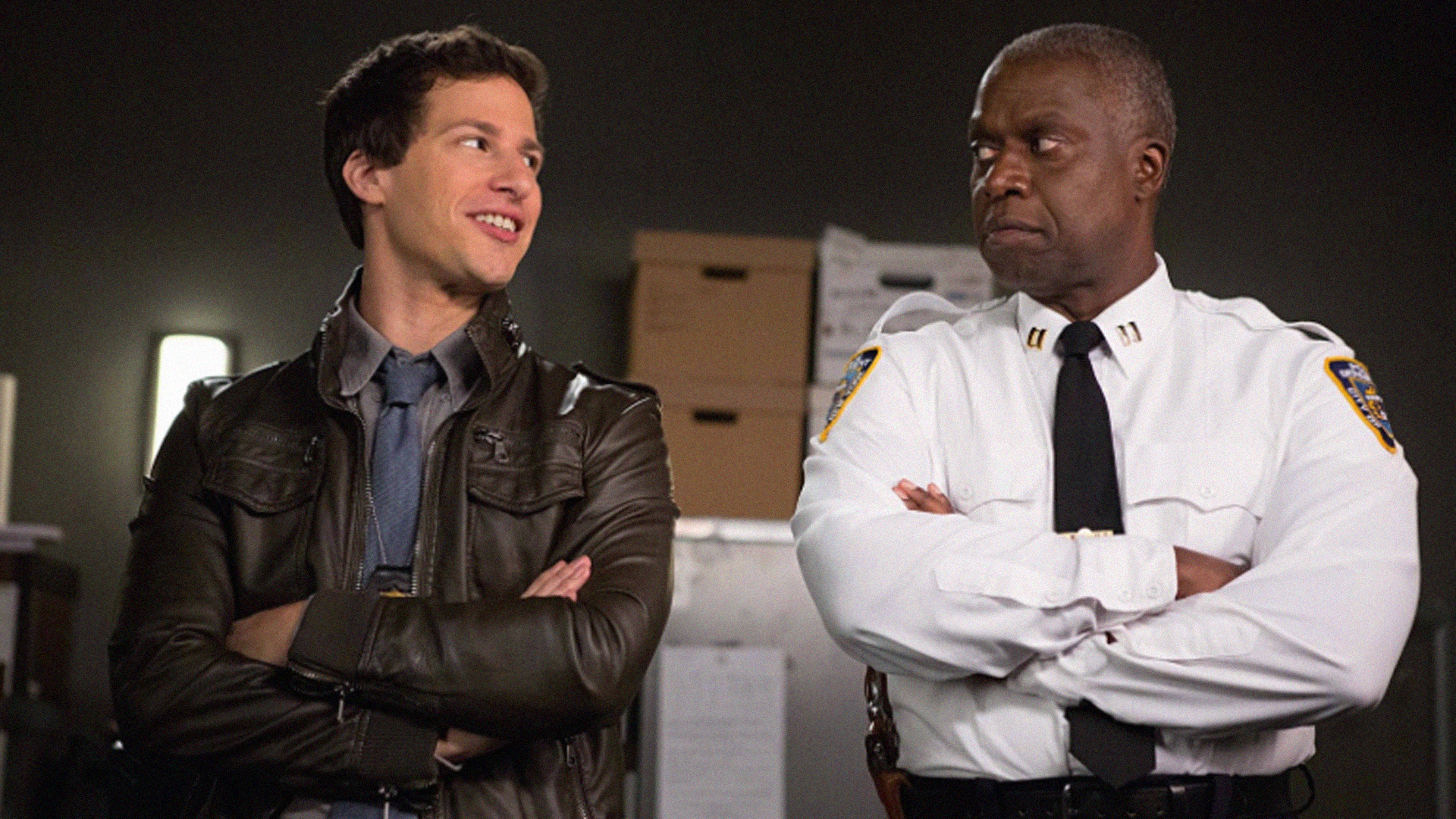The Complications Of Liking ‘Brooklyn Nine-Nine’ as a Black Man

Credit to Author: Funké Joseph| Date: Tue, 05 Mar 2019 16:45:52 +0000
Whenever I tune into the goofy escapades that Jake Peralta and the Brooklyn Nine-Nine crew get into, I laugh. The show is a quality sitcom and makes me hit that deep, from-the-gut chuckle consistently. It’s just funny. But there’s always a point in each episode where I get hit with a poignant aftertaste of “…but real cops aren’t like this.” Then the walls of suspension of disbelief come crashing down, I’m immediately jolted out of whatever joke they’re telling, and I’m thrown into a deeply discomforting state with one question on my mind—why am I, a Black man, watching a show about quirky cops?
That question isn’t foreign to me, though. Some of my top shows are The Night Of, The Wire, and Broadchurch. There’s something super fascinating about watching crime and the justice system interact, but it’s always a tricky genre to navigate because I don’t like cops at all.
Real life cops have abused their power countless times against me and people who look like me. It still feels like almost every other day there’s another black police brutality victim being turned into a post-mortem hashtag. That’s why cheering for the utopian version of cops is a moral dilemma for me.
I do genuinely think that there can be good shows about law enforcement, but those shows need to actively engage with what cops actually are. They can’t be mindless glorification or else they become copaganda, like Netflix’s Bright, Blue Bloods, or Chicago PD, pieces of media that are so scarily disconnected from the reality of cops that they end up serving as offbeat recruitment ads.
A crime show not analyzing the broken systems in place or the potential for abuse of power and corruption within the police force is ridiculously irresponsible. When a modern day show about crime doesn’t talk about relevant social issues, it fails as a crime show. They need to talk about things that are drastically affecting people, like the unfair targeted arrests of black and Indigenous peoples for cannabis possession, how black and brown Americans are almost three times more likely to get murdered by cops than white Americans, or the fact that black people in Toronto are 20 times more likely than white people to be killed by the police. Subjects like these are significant and deserve dialogue and plotlines, shying away from even acknowledging them is straight up cowardly.
Brooklyn Nine-Nine has its issues, but it’s arguably the best cop show right now in terms of tackling the more grotesque parts of justice systems—it’s proof that these things can be addressed on television, even in a comedic way. Take Captain Raymond Holt (played by Andre Braugher) for example. He’s a character that’s black, gay, and became a cop in the 80s, so he’s been through a whole lot of shit. The show calls out the racism and homophobia he faced by giving those experiences a few plotlines and scattered flashbacks to highlight how fucked up his situation was. The prejudice he faced back then is integral to his character; it’s why he has diverse officers, and fights for the elimination of archaic traditions like stop-and-frisk. He knows cops are messed up, so he’s trying to fix it from the inside (which is definitely a bad method in my opinion, but at least it opens up a dialogue for the viewer).
The show brings up Holt’s past frequently, but it’s usually a footnote in the grand scheme of goofs. Season four, episode 16 “Moo Moo” is the first time Brooklyn Nine-Nine fully committed an episode to talking about blackness and racial profiling. In it, Terry Jeffords (played by Terry Crews), a black cop, was unreasonably stopped and threatened by a white cop. The majority of the episode deals with Terry thinking about submitting a complaint against the white officer, and the tension that comes when Holt tries to convince him not to do that because it might endanger Terry’s career.
In an interview with the Washington Post, Dan Goor, one of Brooklyn Nine-Nine’s co-creators, said “This is an episode or an area that I wanted to explore, I think, as early as season 1 or season 2. But I just had so much trouble finding a way in and then figuring out exactly how to pull it off.” He credits the actual development of the episode to Phil Jackson, a black writer for the show, who kept encouraging them to go through with it.
The episode was so strong and surprising to see on primetime TV because it felt like the show was trying to prove that it didn’t want to push away marginalized experiences. After watching it and reading the interviews surrounding it I expected that social awareness to bleed into future seasons, but it’s real disappointing that that’s been the only episode so far to address relations between black people and cops without beating around the bush.
Cops suck and I hate going through the mental struggles that come with being a black fan of crime television. That being said, I appreciate the effort that Brooklyn Nine-Nine puts into approaching recent real world issues, it’s a huge step for the genre, but it can be doing way more. The show serves as a huge reminder that crime shows need to do better, and we need to be more critical of media that deals with law enforcement.
Sign up for the VICE Canada Newsletter to get the best of VICE Canada delivered to your inbox.
Follow Funké on Twitter.